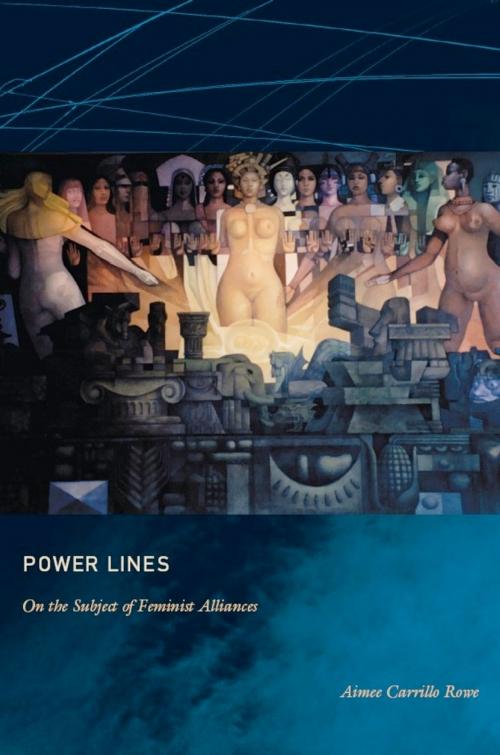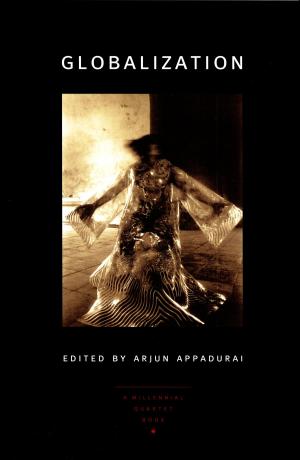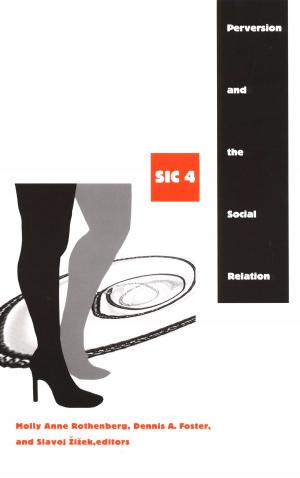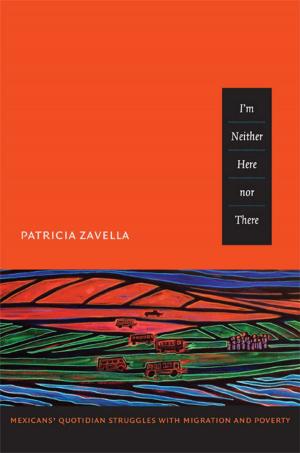Power Lines
On the Subject of Feminist Alliances
Nonfiction, Social & Cultural Studies, Social Science, Cultural Studies, Ethnic Studies, Gender Studies, Women&| Author: | Aimee Carrillo Rowe | ISBN: | 9780822389200 |
| Publisher: | Duke University Press | Publication: | September 25, 2008 |
| Imprint: | Duke University Press Books | Language: | English |
| Author: | Aimee Carrillo Rowe |
| ISBN: | 9780822389200 |
| Publisher: | Duke University Press |
| Publication: | September 25, 2008 |
| Imprint: | Duke University Press Books |
| Language: | English |
Like the complex systems of man-made power lines that transmit electricity and connect people and places, feminist alliances are elaborate networks that have the potential to provide access to institutional power and to transform relations. In Power Lines, Aimee Carrillo Rowe explores the formation and transformative possibilities of transracial feminist alliances. She draws on her conversations with twenty-eight self-defined academic feminists, who reflect on their academic careers, alliances, feminist struggles, and identifications. Based on those conversations and her own experiences as an Anglo-Chicana queer feminist researcher, Carrillo Rowe investigates when and under what conditions transracial feminist alliances in academia work or fail, and how close attention to their formation provides the theoretical and political groundwork for a collective vision of subjectivity.
Combining theory, criticism, and narrative nonfiction, Carrillo Rowe develops a politics of relation that encourages the formation of feminist alliances across racial and other boundaries within academia. Such a politics of relation is founded on her belief that our subjectivities emerge in community; our affective investments inform and even create our political investments. Thus experience, consciousness, and agency must be understood as coalitional rather than individual endeavors. Carrillo Rowe’s conversations with academic feminists reveal that women who restrict their primary allies to women of their same race tend to have limited notions of feminism, whereas women who build transracial alliances cultivate more nuanced, intersectional, and politically transformative feminisms. For Carrillo Rowe, the institutionalization of feminism is not so much an achievement as an ongoing relational process. In Power Lines, she offers a set of critical, practical, and theoretical tools for building and maintaining transracial feminist alliances.
Like the complex systems of man-made power lines that transmit electricity and connect people and places, feminist alliances are elaborate networks that have the potential to provide access to institutional power and to transform relations. In Power Lines, Aimee Carrillo Rowe explores the formation and transformative possibilities of transracial feminist alliances. She draws on her conversations with twenty-eight self-defined academic feminists, who reflect on their academic careers, alliances, feminist struggles, and identifications. Based on those conversations and her own experiences as an Anglo-Chicana queer feminist researcher, Carrillo Rowe investigates when and under what conditions transracial feminist alliances in academia work or fail, and how close attention to their formation provides the theoretical and political groundwork for a collective vision of subjectivity.
Combining theory, criticism, and narrative nonfiction, Carrillo Rowe develops a politics of relation that encourages the formation of feminist alliances across racial and other boundaries within academia. Such a politics of relation is founded on her belief that our subjectivities emerge in community; our affective investments inform and even create our political investments. Thus experience, consciousness, and agency must be understood as coalitional rather than individual endeavors. Carrillo Rowe’s conversations with academic feminists reveal that women who restrict their primary allies to women of their same race tend to have limited notions of feminism, whereas women who build transracial alliances cultivate more nuanced, intersectional, and politically transformative feminisms. For Carrillo Rowe, the institutionalization of feminism is not so much an achievement as an ongoing relational process. In Power Lines, she offers a set of critical, practical, and theoretical tools for building and maintaining transracial feminist alliances.















